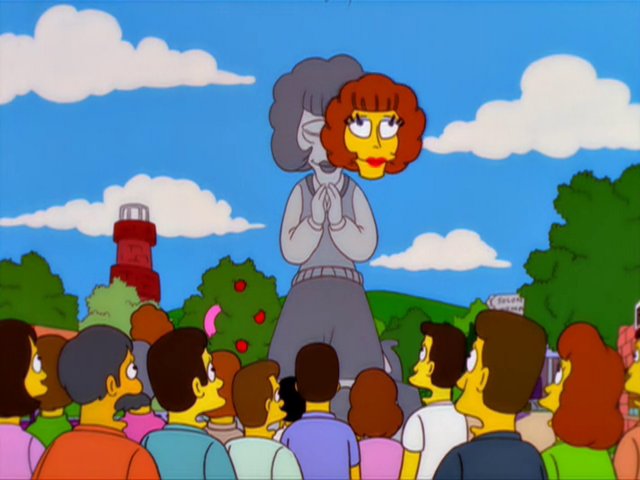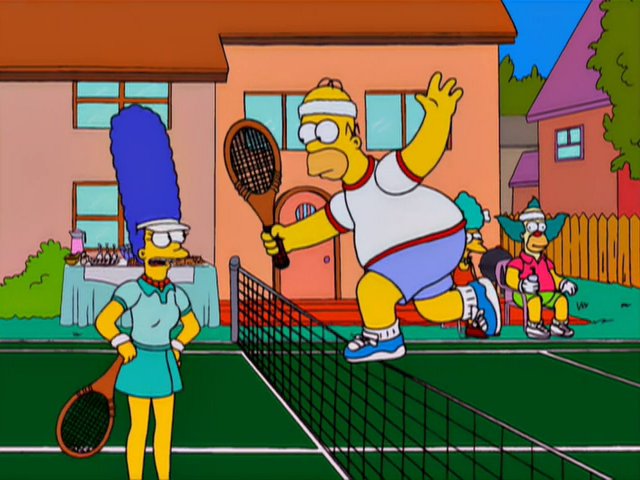
Homer: “There have been so many classic Simpson moments. I remember that time I tried to jump over Springfield Gorge…”
(flashback to “Saturdays of Thunder”)
Homer in Flashback: “I’m gonna make it!”
Lisa: “No, dad! Everyone’s sick of that memory!”
– Lies, damn you!
Airdate: December 9th, 2001
Written By: Ian Maxtone-Graham
Plot: While going out to dinner with the family to make up for an unfortunate paper towel mascot incident, Homer finds himself in the clutches of a local magician. His tricks manage to dredge up a haunting memory from his past that results in him screaming through the night. One tea ceremony later, he reveals that at the tender age of 12, he discovered a dead body blocking an inlet pipe heading out to the local quarry. But who was he? And how did he wind up in the inlet pipe?
Review:
We have reached endgame.
While I have two other episodes and a movie to go, this is really the last dance of Mike Scully’s tenure – the last episode to be aired before Al Jean took the helm indefinitely. One other episode that was produced later was aired weeks earlier. He would helm another episode at the start of Season 14. But this, my friends, is effectively the end of the most controversial era in Simpsons history.
Kind of moving, in a way. Even with a lot of the clunkers that I’ve reviewed, you can’t deny that the end of any era is going to be rather poignant. Reminds me of the last few seasons of Eli Manning’s tenure at the New York Giants – his play got rustier, the team didn’t play up to par, and yet when he was benched for Daniel Jones, I was still rather moved. He played a few more games before hanging it up, but it was still a changing of the guard. Still my QB, forever and ever.
But enough about sportsball, we’ve got The Simpsons to take care of. And this time, we’re flashing back to the late 60s/early 70s! Let’s get some mood music going, and dive into “The Blunder Years”.
Continue reading









You must be logged in to post a comment.